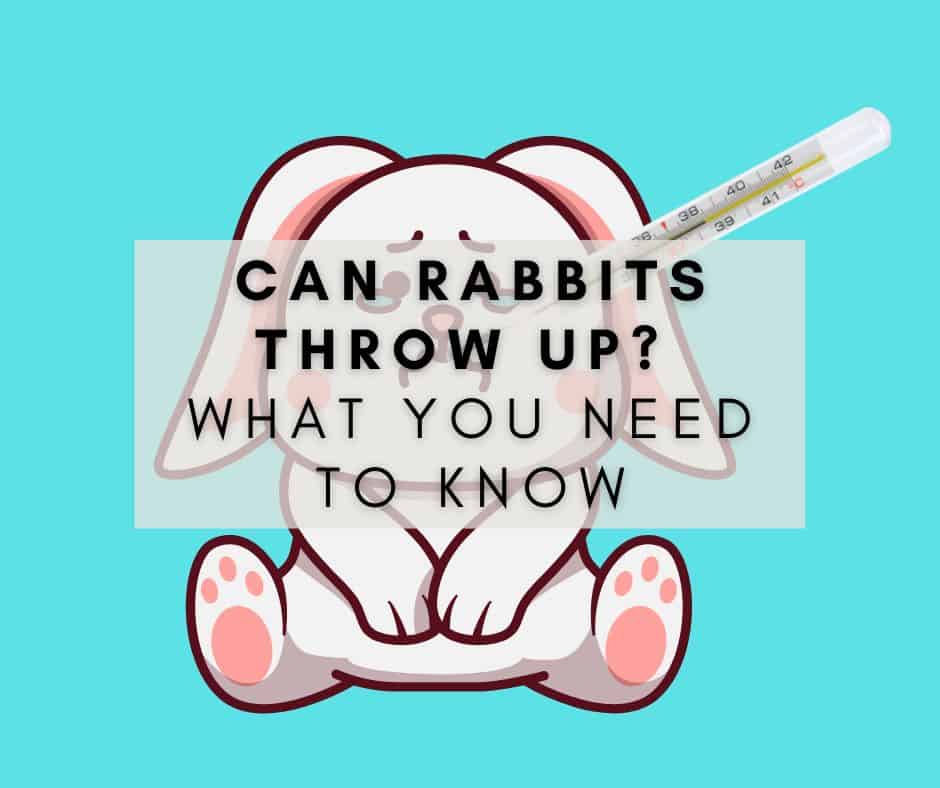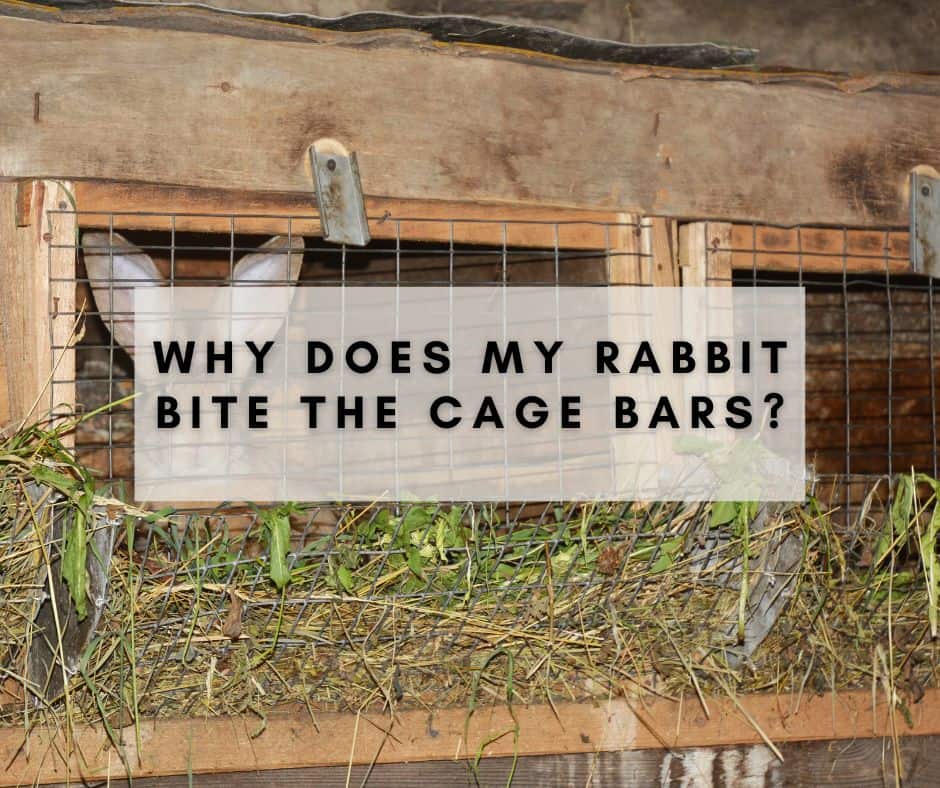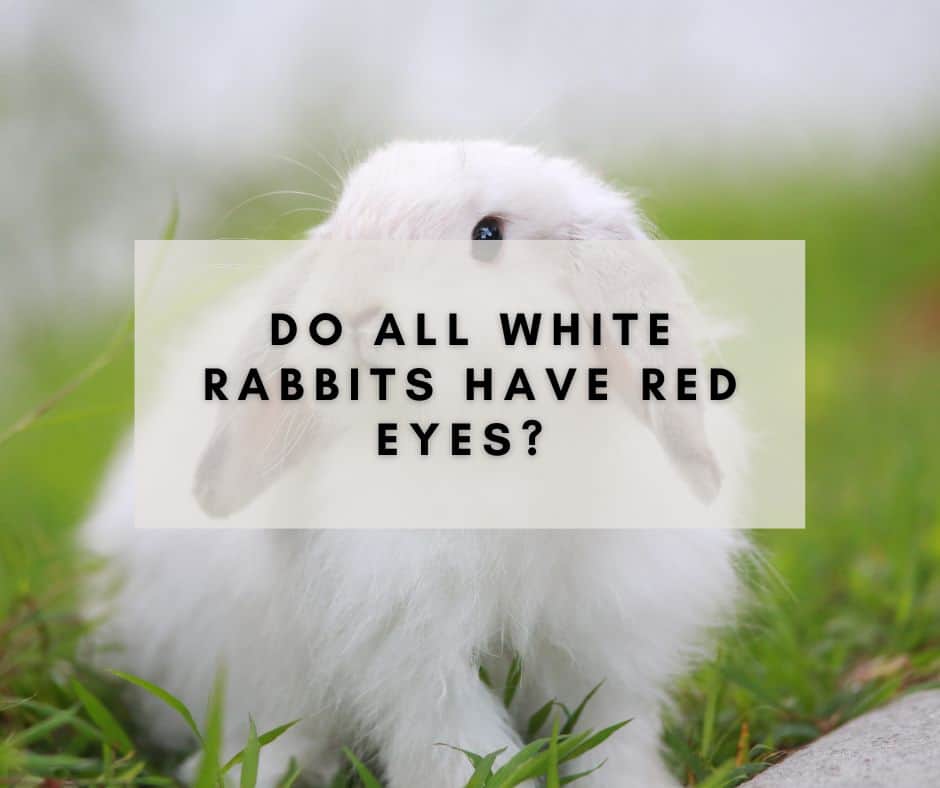Rabbits are adorable and fluffy animals that make great pets. However, as a pet owner, it is important to understand their anatomy and health issues. One of the common questions that rabbit owners have is whether rabbits can vomit or not.
The answer is no, rabbits cannot vomit. Rabbits do not have a gag reflex, and their stomach muscles lack the strength to vomit. This means that if a rabbit ingests something toxic or has a hairball, it cannot vomit it out, making it difficult and dangerous for them.
Understanding rabbit anatomy is crucial to preventing health issues in rabbits. In this article, we will discuss common rabbit health issues, signs of distress in rabbits, and when to seek veterinary help. We will also provide tips on how to prevent health issues in rabbits.
Contents
Can Rabbits Throw Up?
Rabbits are known for their delicate digestive systems, and many pet owners may wonder if their furry friends can throw up. The answer is no, rabbits cannot vomit.
The reason for this is that rabbits lack the necessary anatomy to vomit. Unlike humans and other animals, rabbits do not have a gag reflex. This means that if a rabbit ingests something toxic or indigestible, it cannot expel it through vomiting.
While this may seem like a disadvantage, it is important to note that rabbits have evolved to cope with their unique digestive system. They have a specialized digestive system that allows them to extract as many nutrients as possible from their food. Their digestive process is slow and thorough, which helps them to avoid digestive issues such as vomiting.
It is important for rabbit owners to be aware of the signs of digestive distress in their pets. If a rabbit is experiencing digestive issues, it may exhibit symptoms such as lethargy, decreased appetite, or diarrhea. In some cases, these symptoms may indicate a more serious health issue, and it is important to seek veterinary care right away.
In summary, rabbits cannot throw up due to their lack of a gag reflex. While this may seem like a disadvantage, rabbits have evolved to cope with their unique digestive system. Rabbit owners should be aware of the signs of digestive distress in their pets and seek veterinary care if necessary.

Understanding Rabbit Anatomy
Rabbits are fascinating creatures with a unique anatomy that sets them apart from other animals. Understanding their anatomy is essential to keep them healthy and happy. In this section, we will explore their digestive and respiratory systems.
Digestive System
Rabbits have a complex digestive system designed to extract nutrients from plant material. They are hindgut fermenters, which means that most of their digestion occurs in the cecum, a large sac located at the beginning of the large intestine. The cecum contains billions of beneficial bacteria that break down fiber and produce essential nutrients.
Unlike other animals, rabbits cannot vomit because they lack a gag reflex. This makes getting them over many types of illnesses, such as a hairball or toxicities, much more difficult and dangerous for them. Rabbits have a weak diaphragm, which prevents them from forcefully expelling the contents of their stomach.
Respiratory System
Rabbits have a unique respiratory system that is adapted to their lifestyle. They are obligate nasal breathers, which means that they must breathe through their nose. They have a small trachea and a large larynx, which helps them produce a variety of vocalizations.
Rabbits are prone to respiratory infections, especially if they are kept in dirty or dusty environments. They have delicate lungs that can be easily damaged by airborne particles. Signs of respiratory problems in rabbits include sneezing, coughing, nasal discharge, and labored breathing.
Common Rabbit Health Issues
Rabbits can be prone to a variety of health issues, some of which are more common than others. Two of the most prevalent health problems in rabbits are gastrointestinal stasis and respiratory infections.
Gastrointestinal Stasis
Gastrointestinal stasis, also known as GI stasis, is a condition in which the rabbit’s digestive system slows down or stops working altogether. This can be caused by a variety of factors, including a diet that is too low in fiber, dehydration, stress, or pain. Symptoms of GI stasis include a decrease in appetite, a decrease in bowel movements, and a decrease in activity level.
If left untreated, GI stasis can be life-threatening. Treatment typically involves a combination of medication, fluid therapy, and changes to the rabbit’s diet and environment. Prevention is key when it comes to GI stasis, and rabbit owners should ensure that their pets have access to plenty of fresh water and a diet that is high in fiber.
Supreme Petfoods Science Selective Recovery Plus
Respiratory Infections
Respiratory infections are another common health issue in rabbits. These infections can be caused by a variety of bacteria, viruses, and fungi, and can lead to symptoms such as sneezing, wheezing, and difficulty breathing. Rabbits that live in environments that are too cold or too damp are at an increased risk of developing respiratory infections.
Treatment for respiratory infections typically involves antibiotics and supportive care, such as keeping the rabbit warm and ensuring that they are eating and drinking enough. Prevention is key when it comes to respiratory infections, and rabbit owners should ensure that their pets are kept in a clean and dry environment.
While there are many health issues that rabbits can face, gastrointestinal stasis and respiratory infections are two of the most common. By understanding the symptoms and causes of these conditions, rabbit owners can take steps to prevent them and ensure that their pets remain healthy and happy.
Preventing Health Issues in Rabbits
Rabbits are adorable and make great pets, but they are also prone to health issues. To keep your furry friend healthy, you need to take precautions to prevent health problems. The following are some tips to help you prevent health issues in rabbits.
Proper Diet
A proper diet is essential for the health of your rabbit. A balanced diet includes hay, fresh vegetables, and fruits. Hay should make up the majority of your rabbit’s diet. It helps to keep their digestive system healthy and prevents blockages. Fresh vegetables and fruits should be given in moderation, as too much can cause diarrhea.
It’s important to monitor what your rabbit is eating and make sure it’s healthy. Avoid feeding your rabbit foods that are high in sugar, salt, and fat. These foods can cause health problems like obesity, dental problems, and digestive issues.
Regular Vet Check-Ups
Regular vet check-ups are crucial to the health of your rabbit. A vet can detect health problems early and provide treatment before they become serious. During a check-up, the vet will examine your rabbit’s teeth, eyes, ears, and overall health. They may also recommend vaccinations and parasite preventatives.
It’s recommended to take your rabbit to the vet at least once a year for a check-up. If your rabbit is showing signs of illness, such as loss of appetite, lethargy, or diarrhea, take them to the vet immediately.
By following these tips, you can help prevent health issues in your rabbit. A healthy rabbit is a happy rabbit, and they will reward you with lots of love and snuggles!
Signs of Distress in Rabbits
Rabbits are sensitive animals that can easily become stressed. It’s important to know the signs of distress in your rabbit so you can take action to alleviate their discomfort. Here are some common signs of distress in rabbits:
- Tooth Grinding: When a rabbit is in pain or discomfort, they may grind their teeth. This is a sign that they are experiencing discomfort and should be addressed.
- Hostility and Sudden Aggression: If your rabbit is suddenly aggressive or hostile, it may be a sign that they are in distress. This behavior can be a result of fear, pain, or discomfort.
- Changes in Breathing: If your rabbit is breathing heavily or has difficulty breathing, it may be a sign of distress. This can be caused by a variety of factors, such as respiratory infections or stress.
- Changes in Appetite: A decrease in appetite can be a sign of distress in rabbits. If your rabbit is not eating or drinking, it may be a sign that they are experiencing discomfort or pain.
- Rabbit Shrieking: If your rabbit is shrieking, it is a sign of extreme distress. This behavior can be caused by a variety of factors, such as pain, fear, or discomfort.
If you notice any of these signs in your rabbit, it’s important to take action to alleviate their distress. This may involve taking them to the vet or making changes to their environment to reduce stress. By being aware of the signs of distress in your rabbit, you can ensure that they are comfortable and healthy.
When to Seek Veterinary Help
If a rabbit is showing signs of distress, it is important to seek veterinary care. Rabbits are delicate animals and can become ill quickly. It is important to monitor your rabbit’s behavior and health closely to ensure that they are healthy and happy.
Some signs that your rabbit may need veterinary care include:
- Refusal to eat or drink
- Lethargy or lack of energy
- Diarrhea or constipation
- Difficulty breathing or wheezing
- Runny nose or eyes
- Changes in behavior or temperament
It is important to note that rabbits cannot vomit, so if you notice your rabbit gagging or choking, it may be a sign of a more serious respiratory infection or heart disease.
If you suspect that your rabbit is sick, it is important to seek veterinary care as soon as possible. Delaying treatment can lead to more serious health problems and potentially even death.
When you take your rabbit to the vet, be sure to bring along any relevant medical records and information about your rabbit’s diet, behavior, and symptoms. This will help the veterinarian diagnose and treat your rabbit more effectively.
In addition to seeking veterinary care when your rabbit is sick, it is also important to take preventative measures to keep your rabbit healthy. This includes providing a high-quality diet, keeping their living environment clean and free of hazards, and providing regular exercise and socialization.
Conclusion
In conclusion, the answer to the question “Can rabbits throw up?” is not a straightforward one. While some sources claim that rabbits cannot vomit due to their lack of a gag reflex, other sources suggest that rabbits can indeed vomit in certain situations.
It is important to note that rabbits have a unique digestive system that requires careful attention and monitoring. Owners should be aware of the signs of digestive issues, such as bloating, diarrhea, and loss of appetite, and seek veterinary care if necessary.
Additionally, owners should be cautious about what they feed their rabbits, as certain foods can cause digestive upset and potentially lead to vomiting. Foods such as chocolate, avocado, and high-sugar fruits should be avoided.
Overall, while the question of whether rabbits can vomit may not have a definitive answer, it is important for owners to be knowledgeable about their pet’s digestive system and take steps to ensure their rabbit’s health and well-being.





